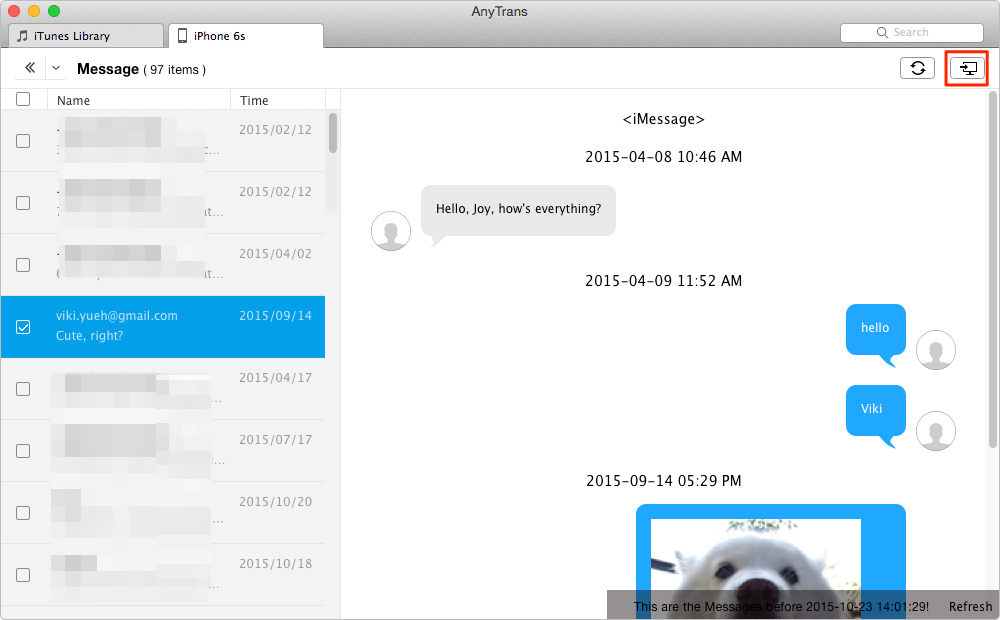

And when you log into a new device, even if you haven't restored from backup, you'll be able to get that whole archive in short order. Messages for iCloud eliminates those issues: If you choose to sync your messages to iCloud, you'll keep a constantly-backed-up archive of your messages that can be pulled down to any of your devices at any time. On top of that, if you log into Messages with a new device without restoring from a backup, you'll only see new messages sent to that iPhone, iPad, or Mac - you won't get any older messages. But the system isn't perfect: Messages don't always make it to every device, especially if your device has been offline for a while. How is this different than iMessage currently works?Ĭurrently, iMessages (and SMS messages, if you have SMS relay set up on your iPhone) get sent simultaneously to every device you own which you've also logged in to the iMessage system. How to turn on Messages in iCloud on iPhone and iPad.How is this different than iMessage currently works?.Make sure you have your phone number added to your Apple ID account online.Delete all your previous conversations: Some people have reported that they had to delete all of their conversations before things would sync up.Disabling then re-enabling iMessage on each device that isn't being synced to.If you are still having trouble getting new iMessages to sync across the devices try: Select the checkbox to Enable Messages in iCloud.In the menu bar, select Messages -> Preferences.Tap your Apple ID profile at the top of the list.To turn on Messages in iCloud on your iOS device: Make sure you are running the latest version of macOS or iOS. Enabling Messages in iCloud will sync historical messages across all of your devices. However, iOS and macOS now support "Messages in iCloud": Apple Support Document.

The steps described previously will not automatically cause old iMessages to sync across all devices. The most important part is that everything is consistent across all devices that are necessary.



 0 kommentar(er)
0 kommentar(er)
